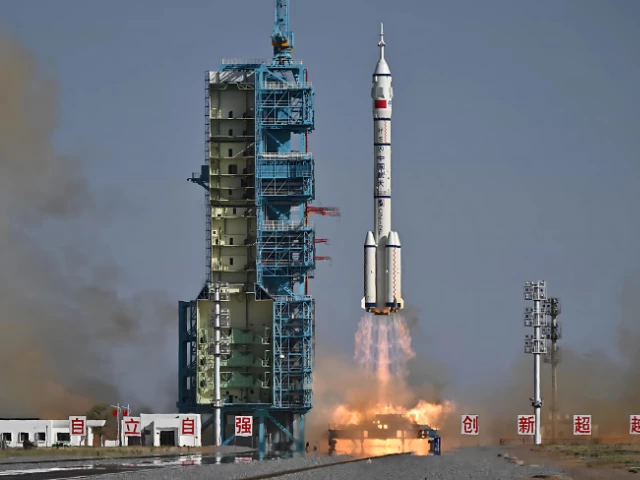China launches Shenzhou-20 mission for six-month Tiangong mission
China launches Shenzhou-20 with three astronauts for 6-month Tiangong mission, marks 10th Space Day, eyes global ties.

China launched the Shenzhou-20 spacecraft carrying three astronauts to its Tiangong space station on Thursday, marking the 35th mission of its manned space programme and deepening its role in space science and international collaboration.
The mission lifted off at 5:17 pm Beijing time (09:17 GMT) aboard a Long March-2F rocket from the Jiuquan Satellite Launch Centre in northwest China.
The crew — Chen Dong, Chen Zhongrui, and Wang Jie — will spend six months aboard the Tiangong space station, conducting experiments and replacing the current occupants, who are scheduled to return on April 29.
According to the China Manned Space Agency (CMSA), the astronauts will undertake new life science experiments, including studies on zebrafish, streptomyces, and planarians — a type of flatworm known for its regenerative abilities.
This marks the first time planarians will be used in space-based research aboard the station.
“This project will enhance our understanding of regeneration mechanisms and may inform medical studies on space-induced injuries,” said CMSA spokesperson Lin Xiqiang.
The launch coincided with China’s 10th Space Day, which commemorates the successful launch of the country’s first satellite, Dongfanghong-1, on April 24 1970.
Shenzhou-20 is the fifth crewed mission during the station’s application and development phase. With the International Space Station (ISS) nearing retirement, Tiangong could soon become the only operational space station in orbit.
In a related development, CMSA also announced that two Pakistani astronauts are currently undergoing selection for training in China.
One of them is expected to participate as a payload specialist in a future joint spaceflight, making them the first foreign astronaut aboard the Tiangong station.
Observers note that China has been building its own space infrastructure following its exclusion from the ISS project, amid concerns over military involvement in its space operations.
Tiangong’s capabilities, including a long robotic arm able to capture objects in space, have drawn international scrutiny.
The success of Shenzhou-20 highlights China's expanding ambitions in human spaceflight and sets the stage for deeper scientific and international engagement in orbit.




















COMMENTS
Comments are moderated and generally will be posted if they are on-topic and not abusive.
For more information, please see our Comments FAQ